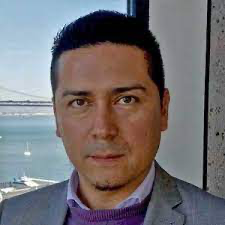The Evolution of the Internet of Things Science: Perspectives from IoT Device Management to Managing the IoT Full Stack at the Edge and from Data Collection to Data Marketplaces
The Internet of Things (IoT) has advanced rapidly transforming the perception of the society about the close connection between the data from physical devices, the information that is generated from that data and their effect at the end user applications. In this talk we will analyse the evolution of the Internet of Things from different perspectives and will dive into concepts that represent a vision in how Internet of things looks like today and what we should expect in the years to come. The management of the devices have been a priority in the Internet of Things, and today this has been level up towards managing not only the devices but also the data, the IoT platforms and the applications which those devices are able to support. The Internet of Things Stack was defined including those management techniques (i.e. autonomic, self-management); which ones have been developed over the run of these years? what other management paradigms will emerge in coming years? It is clear that the IoT evolution has been triggered in different directions, from looking at more powerful devices that process large amount of data at the Edge to a larger development in the number of interoperable IoT platforms where the development of architectures in the cloud and cross-domain applications can use the data seamlessly offering new end user applications. This multidirectional evolution has resulted in the creation of several parallel IoT ecosystems, some of them open but most majority proprietary ecosystems. Therefore, we will also discuss the challenges and proposed solutions for interoperability of these IoT ecosystems, current propositions and the management techniques for the delivery of data services over those IoT platforms.

Martin Serrano
Adjunct Lecturer and Senior Research Fellow
Data Science Institute – Insight Centre for Data Analytics
Head of Internet of Things, Stream Processing and Intelligent Systems Research Group
National University of Ireland Galway, www.nuigalway.ie
Speaker’s Short Bio
Dr. Martin Serrano is the head of the Internet of Things, Stream processing and Intelligent Systems research Unit and Scientific director in the area of Internet of Things at the Data Science Institute – Insight SFI Research Centre for Data Analytics at the National University of Ireland, Galway (NUI Galway), Ireland and an International Associate Scientist at the National Institute for Standards and Technology (NIST) at the Smart Connected Systems Division in the Communications Technology Laboratory (CTL) in Gaithersburg, Maryland, USA. Listed between top 25 key people influencing the Internet of Things by Silicon Republic and awarded with the NGI Explorer Best Impact Award, a prestigious award for his achievements and trajectory in science (equivalent to the Oscars awards).
Dr. Serrano is an IoT expert with more than 15 years of research experience in industry and applied research within a wide range of successful (FP6/FP7-H2020) European collaborative projects, Irish National (HEA PRTLI, SFI) and also EU Industrial innovation projects. He also leads Experiments in European FIRE Platforms. Dr. Serrano has a leading role in the European Research Cluster for the IoT with a strong background on semantic interoperability, services and network management technologies. Dr. Serrano has coordinated and managed successful IoT projects (OpenIoT, VITAL-IoT, FIESTA-IoT and Recently i3-MARKET). Dr. Serrano is actively investigating, Semantic-based Cloud Infrastructures and Big Data Management, Data Bases Stream processing, Cyber-Physical Systems (CPS) Control, Privacy and Security aspects for IoT, Sensor Networks for the IoT and their deployment in cloud computing environments. Dr. Serrano is an active member of IEEE (Computer and Communication Societies) and ACM. He is author of the academic book “Applied Ontology Engineering in Cloud Services, Networks and Management Systems”.
